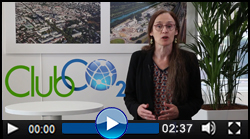5 minutes of reading
With more than 20 years’ experience in the field of CCUS, IFPEN is co-organizing this 16th edition of the IEAGHG (International Energy Agency Greenhouse Gas R&D Program) conference on greenhouse gas control technologies, alongside the Club CO2, ADEME, BRGM and TotalEnergies. It will be held in Lyon from 23 to 27 October 2022. A first for France, at a time when decarbonization objectives call for an acceleration in CO2 emission reductions.
The must-attend event in the international CCUS research calendar
France was chosen by the International Energy Agency’s Greenhouse Gas R&D Program - the IEAGHG - to host the 16th international conference on greenhouse gas control technologies (GHGT-16).
This event represents the key focal point of international research on CO2 capture, utilization and storage (CCUS). Held every two years, it brings together more than 1,000 participants to discuss the technologies designed to help meet the objectives set out in the 2015 Paris Climate Agreement.
GHGT-16 in figures:
815 abstracts received from 39 countries, including 79 from France (2nd biggest contributor behind the USA with 141 abstracts)
355 oral presentations
360 posters
14 sponsors, 23 exhibitors
As part of a consortium formed with the Club CO2, ADEME, BRGM and TotalEnergies and with considerable expertise developed throughout the entire chain, IFPEN is co-organizing this edition, the focus this year being the industrial applications of CCUS technologies. Leading the way is Florence Delprat-Jannaud, CO2 coordinator and manager of the ”CO2: capture, storage, utilization & negative emissions” program at IFPEN and chair of the Club CO2.
Around twenty speakers, a stand and laboratory tours IFPEN on the front line
Highlights on the agenda: plenary speeches by eminent global climate change and policy experts: expert debates, beginning on Monday 24 October with the roundtable entitled “Regulation and policies for successful deployment of CCS” chaired and moderated by Florence Delprat-Jannaud, with the participation of Pierre-Franck Chevet, chairman of IFPEN and chairman of Ancre.
The challenges of CCUS technologies will be presented at two poster sessions and 71 technical sessions. Fourteen experts from IFPEN will speak on one of the seven themes of a program that covers the entire value chain: CO2 capture and storage, transport infrastructures, industrial applications. As well as the purely technical aspects, the conference will also tackle CCUS policies and regulations, societal acceptability and negative emissions.

IFPEN interventions
24 october
Opening speech : Florence Delptrat-Jannaud, chair of the Club CO2
24 october
Assessments from full-chain projects
Chaired by : Florence Delprat-Jannaud
Presentations :
Assessing the role of negative emission technologies in the low carbon transition of the iron and steel sector
Carlos Andrade *
Chemical Looping,
Chaired by: Stéphane Bertholin
Direct Air Capture (DAC)
Chaired by: Florent Guillou
DMX demonstrator for CO2 capture: pilot unit presentation
David Albarracin-Zaidiza
Thermodynamic and kinetic model for CO2 absorption in the DMXTM process
Pierre Bachaud
25 october
4D Biomass & CCS
Chaired by: Paula Coussy
Présentations et e-posters:
Life Cycle Assessment of BECCS systems: critical review of life cycle inventories
Sibylle Duval-Dachary
Hybrid Sorbents
Chaired by: Florent Guillou
Metal-Organic Frameworks (MOFs): from screening to commercialization
Chaired by: Florent Guillou
Paper #7 - Low reaction enthalpy nitrogenous heterocycle salt solutions for fast cycle CO2 capture
Guillaume Pétaud
Paper #12- The 3D Project on DMX Demonstration in Dunkirk: a project overview from CO2 capture to storage
Vania Santos-Moreau
26 october
e-posters:
Paper #223 - Gas monitoring in wells in CCS context: Application of a mobile cabin for detecting low content of gas dissolved in water
Audrey Estublier
Paper #506 - Data investigation in the process of selecting a CO2 geological pilot site: example of the Paris Basin (France)
Damien Bonté
Paper #370 - Effect of Curing Pressure on the Shear Strength of Cement-Casing Interface
Frédérique Rossillon
Paper #794 - removal and 1.5°C: Sharing the Gains from Interregional Cooperation using a Game-Theoretic Approach
Emma Jagu
Paper #390 - CO2 Hydrate Stability Zone: Effect of Salinity, Measurements and Models
Anne Sinquin (presented by Audrey Estublier)
27 october
Amine Pilot Plant Studies II
Chaired by : Vania Santos-Moreau
Presentations :
An economic evaluation of eight regional scenarios for the deployment of carbon capture, use and storage in Southern and Eastern Europe to 2050
Paula Coussy
Life cycle assessment of CCUS scenarios in three promising European regions
Guillaume Batôt
Evaluation of surface movement observability and optimization of the monitoring plan through conceptual and coupled flow-geomechanics models - Examples of carbonate and sandstone reservoirs in CCS context
Sarah Bouquet
CCUS- Perspective of a Youth Panel (Final Panel session)
Sibylle Duval-Dachary
Finally, in addition to its conference stand, IFPEN will be organizing a tour of its laboratories at its site in Lyon for participants wishing to gain a more in-depth understanding of the technical challenges facing the sector. They will be able to discover the experimental facilities and CO2 capture pilot testing units (chemical looping combustion - CLC -unit, industrial micro-pilot for the DMX process, etc.).

Find out more about IFPEN's research in this field and the many collaborative projects in which IFPEN is involved.






